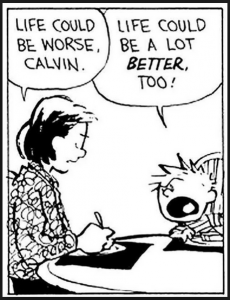A usually well-respected defense lawyer, Susan Necheles, today engaged in a so-called “sluts and nuts” defense of her client, Donald Trump, in his current hush-money trial. She painted Stormy Daniels as wacky and not credible by querying Ms. Daniels about her spiritual practices on the stand. Even worse, she branded Ms. Daniels as insincere when she said she had felt scared and anxious on the night she and Trump had sex. She implied that Daniels’ expression of fear over thinking she was in a situation in which her safety and career could be compromised if she didn’t agree to sex with Trump was unbelievable.
And that’s disgusting.
Trump is accused of paying Ms. Daniels $130,000 to keep silent about a sexual encounter they had nearly two decades ago. While such payoffs are not necessarily illegal, paying off someone to hide information that could materially affect public opinion during a presidential campaign is. So is lying about that to the federal government.
Ms. Daniels made clear that she never intended to have sex with Trump. She thought had been invited for dinner and a talk—two entertainment professionals having a discussion that might lead to a business deal. Perhaps he’d offer her a stint on Trump’s Celebrity Apprentice TV show. She even teased him when she showed up and he was in silky pajamas, and told him to go get dressed—which he did before they talked for two hours.
Ms. Daniels asked if he was always so rude as to show up for dinner in pajamas, and not even have any food to feed her? She teased him, shaming him into getting dressed in something other than a satin robe. When he constantly interrupted her answers to his many questions, she asked him if he was always so self-absorbed. She thought she’d set a tone that showed she was in control of herself, and capable of setting boundaries and setting him straight when he treated her without respect and dignity. It seemed to be going well.
Trump and Ms. Daniels talked about work and families. The then-60-year-old man said three times that his then-27-year-old guest reminded him of his daughter Ivanka—both were beautiful, smart, and not given the respect they deserved.
But after two hours of talk, when she excused herself to use the bathroom, she walked out to find Trump in his underwear on a bed, looking at her, obviously ready and waiting to have sex with her. Her stomach dropped. She worried what the bodyguard would do if she said no. Would the bodyguard let her leave? Would Trump? What would happen to her career? She’d not wanted to go dinner with Trump in the first place, but only did so because her manager had said it could be a good career move to talk with him, and “What could go wrong?”
Lawyer Necheles acted incredulous that the famous Stormy Daniels wouldn’t be willing to have sex with just anybody at any time. How could she of all people be anxious when a large, powerful, famous man with a big bodyguard just outside the door made it clear that he expected her to give in to him? Necheles acted as if it were unbelievable that Ms. Daniels, then a married woman who had worked as an exotic dancer and a porn movie star, should have any compunction over, preferences about, or fear for her safety when faced with an potential sex partner whom she hadn’t chosen or approved. A man famous for having sex with lots of young women. A man who had determined that Ms. Daniels was regularly tested for STDs, but who had no such proof of his own to offer about his health.
Necheles acted as if every sex worker is just a careless and worthless person with no right to respect, dignity, or physical autonomy. No need to be concerned for her health and safety. No reason to say no to a married man over twice her age who expected her to do whatever he wanted—and who didn’t even wear a condom during their encounter.
No one should EVER feel pressured into a sexual situation with anyone. Not even a (supposed) billionaire with fame, power, and a reputation as a litigious bully (which he had even back then).
Ms. Daniels says she was not raped, and not forced to have sex. But the power imbalance between her and Trump was huge. Their age imbalance was enormous. The amount of respect Trump got as the star of a popular TV show vs. the respect Stormy got as a woman who had sex on camera for money was vastly different. Ms. Daniels says she went along with his wishes, but that she felt numb, that she dissociated, that she asked herself how’d she’d gotten herself in that situation. She was shaking so much afterward that she had trouble putting her boots back on to leave. Because she’s a human being who felt shame for being in a situation that scared her, and humiliation for thinking that she mattered to Trump as more than a sex toy.
If a person isn’t interested in having sex, says no, asks to stop at any time, or was willing in the past but is no longer, it legally makes no difference whether that person is one’s wife or a X-rated movie star. Pressuring anyone sexually is wrong, regardless of career, personal experience, number of partners, or current relationship. The idea that someone who has sex as part of her job should be totally without preferences about partners, fear about unwanted encounters, or concern or say over who uses her body, is repugnant. And using such a defense in court is outrageous.


